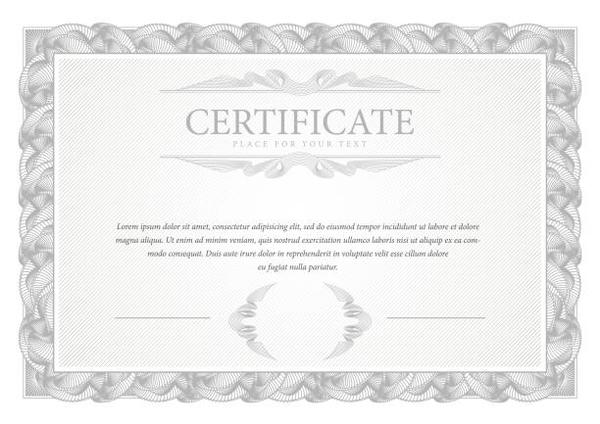It’s important to approach higher education with a healthy dose of skepticism and an eye for too-good-to-be-true offers. Verifying the degree, evaluating an institution’s online presence, seeking recommendations and conducting a thorough review can help separate genuine credentials from fraudulent ones.
Eaton notes that creating a blacklist of diploma mills is difficult because fraudsters change names and domains regularly. There are, however, some clear red flags that can tip off employers to fake degrees.
Online Job Portals
Online job portals are platforms that connect jobseekers with employers. They offer a variety of features to help job seekers find employment that suits their skills and experience. They also allow employers to post job vacancies and receive applications from prospective employees. Online job portals can be used to search for jobs by location, industry and salary range. They also enable candidates to create multiple profiles and apply for jobs at the click of a button. Most job portals also feature a “Featured jobs” section, which highlights highly sought-after positions.
As the global economy recovers from the Covid-19 pandemic, many companies are looking to hire new staff members. However, the emergence of fake degrees and diplomas has https://lambanggiagiare.net/ made it increasingly difficult for employers to identify qualified candidates. These fraudulent credentials can have serious consequences for both job seekers and their employers.
One of the most common forms of fake credentials is diploma mills, which are not accredited by any official body. These bogus universities charge money for degrees that don’t require much academic work, and they are often promoted by high-pressure sales tactics. They have become a worldwide problem, with some estimates suggesting that up to 30% of all applicants have falsified their credentials. For this reason, it is important to conduct thorough background checks on potential employees, and to verify their educational qualifications by contacting the issuing institutions and previous employers.
Credential Verification
The use of fake degrees, diplomas and transcripts is a serious problem in the educational sector. This has a huge impact on job seekers who are trying to get into a field that they don’t have any education in, and it also undermines the hard work of real graduates.
Many people who are looking for jobs are desperate and willing to take shortcuts to land a position that will pay them well. They may be tempted to buy a degree online and use it to boost their credentials, but this can lead to legal consequences if caught. There are also some degree verification companies that can help you verify the authenticity of a certificate, but this process is tedious and time-consuming.
According to Reed, who worked as the director of postsecondary education in Tennessee for six years, identifying fake degrees is difficult. He says that if the university in question has merged or changed its name, this is an indication of a counterfeit certificate. In addition, he advises employers to check for a registrar’s name and contact information on the certificate.
Another way to spot a fake diploma is to look for any Latin language used on the document. In the UK, for example, universities will never use Latin phrases like ‘Cum Laude’, and any certificate that does should be considered suspicious.
Diploma Mills
Diploma mills are black-market businesses that ply their trade on loopholes in higher education regulation. They can offer degrees in a few weeks or months without any meaningful coursework, and can be aided by fake accreditation agencies that make their products appear legitimate. Recognizing a diploma mill requires that one look for specific warning signs. These can include:
In the United States, these bogus institutions often target international students seeking better career prospects in America or seeking to augment existing credentials with more marketable titles. They may use American-like institution names, or rely on the popularity of well-known universities in other countries. They also exploit the lack of centralized oversight in the United States to promote themselves and lure unsuspecting students.
The problem is not just a nuisance to consumers, but is a significant impediment to the reputation of reputable educational institutions. These institutions can be damaged by illegitimate credentials and may lose their competitive edge as employers seek to verify the validity of applicants’ qualifications. While diploma mills can’t be stopped, any effort to limit the damage they do to the integrity of higher education and the reputations of staff in HEIs can only help.
Background Check Services
Despite advancements in verification technology and best practices, falsified credentials remain a global problem. Employers and organizations can save money, boost their reputations, reduce liabilities, and keep staff, customers, and the public safe by detecting and preventing academic fraud before it happens.
Typically, education and employment verification involves reaching out to past employers and institutions to confirm the authenticity of the degree or certification a candidate claims to have earned. This process helps detect discrepancies or false claims in resumes, applications, and interviewing sessions. It can also help identify degrees from unaccredited schools, which may be a sign of fraudulent credentials.
The traditional verification process is expensive and time-consuming, often taking days, weeks, or even months to verify educational and training certificates. Thankfully, innovative technologies like Dock Certs and the Dock Wallet allow people to prove their credentials instantly by submitting the digital version of their documents for verification. Using blockchain technology, the verification company can quickly check the holder’s credentials against the original records from issuing institutions.
Background checks can reveal information that would disqualify an applicant from a job, such as criminal convictions, substance abuse problems, or financial issues. By following verification best practices and partnering with trusted background checking providers, organizations can protect their businesses from costly errors that could damage their reputations and financial security.




